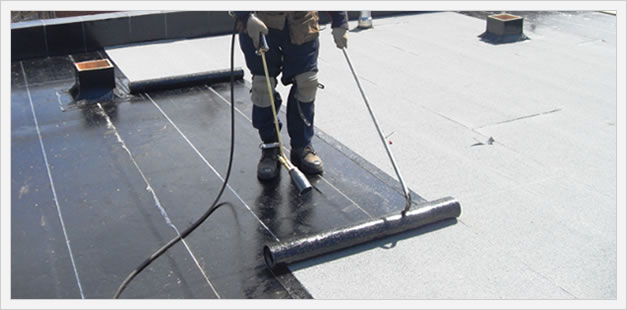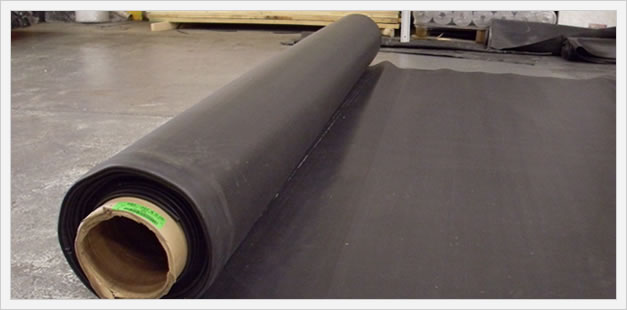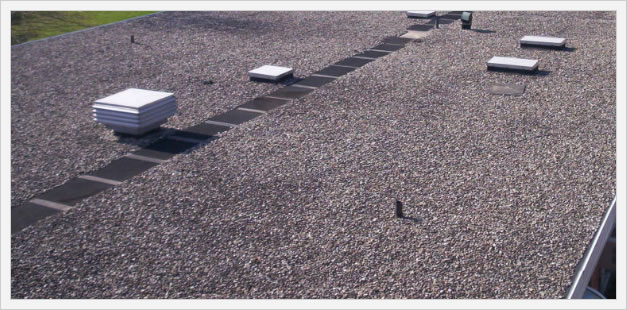
| PROJECT BASICS | PRICES & COSTS | POPULAR MATERIALS | ROOFING STYLES |
Flat Roof Basics
Flat roofs are quite common in residential homes and are often associated with certain types of roofing materials, including torch down, tar & gravel, and rubber roofs. Flat rooflines are the safest for the workers themselves and are the least expensive projects for homeowners. We'll explore some of the cost considerations that go along with a flat roofline, as well as detail some of the more common materials used with this roof slope.

Worker's Compensation
One of the biggest contractor expenses is worker's compensation, which can account for a whopping 30% of the project bid price. Worker's comp is affected by a number of factors that go beyond the scope of this article, but the insurance is heavily affected by the state in which the contractor carries their license. Luckily, flat roofs pose a much less dangerous work environment for roofers; less chance of falling and/or suffering injuries that would increase the worker's comp insurance (this point probably didn't need to be explained, but we thought we would anyway).
Overall Project Difficulty
Flat rooflines make for a much easier roofing project and are therefore much cheaper to install. The roofers don't have to deal with any sort of roof slope, which makes for an safer and less stressful work environment. In addition, the project can often be completed more quickly because of the ease of mobility for the roofers. Of course, flat roofs are not ideal for all homes, particularly those homes and locations that are subject to severe weather conditions. These homes usually require a more steeply sloped roofline.
Torch Down Roofs

One of the most common materials associated with a flat roof is torch down roofing, which uses fiberglass sheets and layers of modified bitumen. The installation requires a blow torch that would essentially be impossible on a roof with any slope to it (we can't even imagine the worker's comp charge to install torch down on a sloped roof).
Additional Resources | Torch Down Roofing | Cost Of Torch Down Roofs
Rubber Roofing

The rubber roof sheets or membranes are a custom made roofing option that is manufactured to fit the shape and size of a particular roof. This is not a cheap choice, but it offers some advantages including the face it reduces risk of leaking because there aren't any seams to worry about. The types of sheeting available include EPDM and IB. Bear in mind this particular rubber roofing option is a heavier material, which can make installation a little harder. It works very well on flat and smaller roofs.
Additional Resources | Rubber Roofing Membranes | EPDM Roofing Costs
Tar and Gravel

A tar and gravel roof is made up of layers of tar and asphalt paper, which are then applied to the roof surface with a mop. Each layer is laminated and then finished with a gravel layer, protecting the roof against the harmful UV rays. The top layer of gravel remains loose, while the lower level is embedded into the asphalt. These roofs can last up to twenty years and are almost always used on flat roofs with no slope to them.
Additional Resources | Tar And Gravel Roofs | Tar And Gravel Roof Replacement Cost